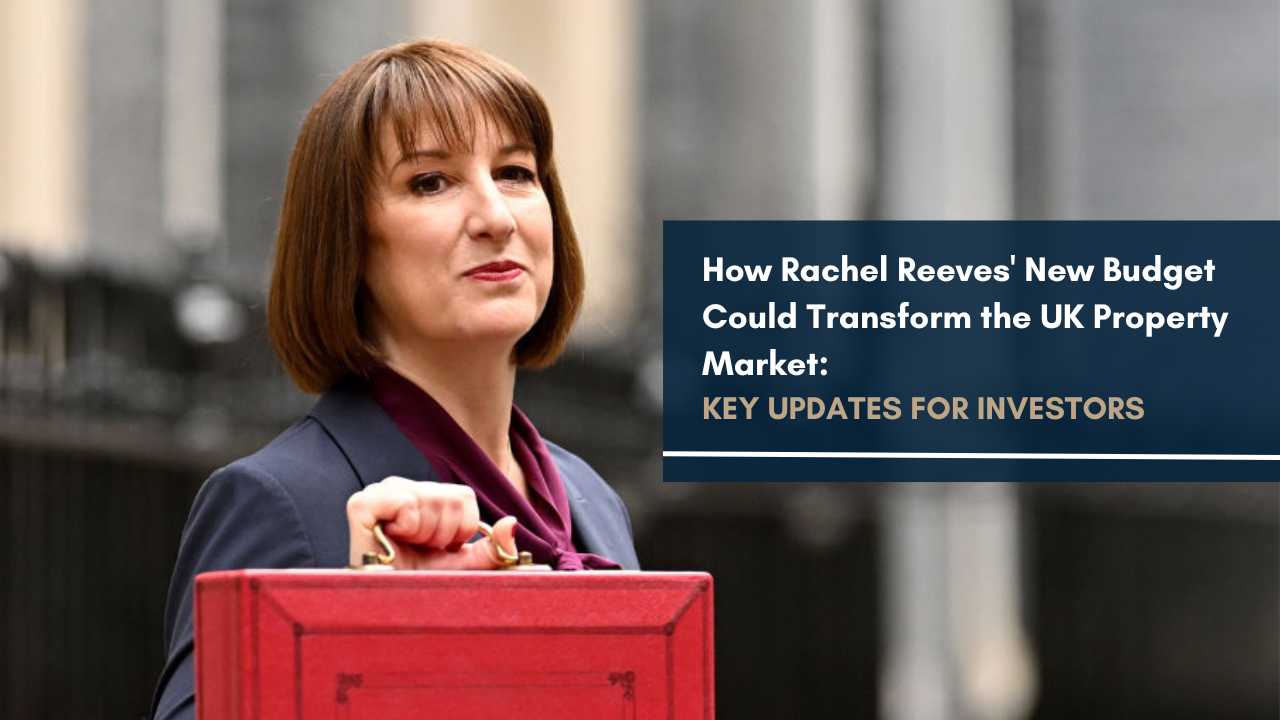Manchester was recently named the best city in the UK to be a landlord by Go Compare, sparking worldwide interest.
With an average rental yield of 5.55% and property prices well below the national average, it is no surprise that this city continues to cement itself as an investor favourite.
Manchester is an integral element of the Northern Powerhouse. The entirety of the North West region sees continual growth every year, with businesses flocking to the area. In March 2021, rent prices in the region were reported to be 6.8% higher than 12 months prior.
Savills have predicted that rent prices will grow 17% by 2025 in Manchester, showing the lucrative returns available in the booming city. Plus, there are over 200 lettings and management agencies across Manchester, highlighting the astronomical size of the rental market in the city.
In this post, we’ll explore what’s at the heart of Manchester’s property market growth, and we’ll look at the forecasts for 2021 and beyond.
Pulls to Manchester
The Greater Manchester region is popular for several reasons. Incredibly, between 2006 and 2016, the population grew by 7.7%, which was twice as much as the rest of the UK.
Manchester is a hugely diverse city, with over 200 different languages spoken. 40% of adults in the region can speak at least two languages, meaning individuals from all over the globe feel immediately at home. Following the uncertainty of Brexit, Manchester continues to draw foreigners from the continent and beyond.
Furthermore, Manchester is a forward-thinking city with an impressive arts scene and bustling nightlife. Positively, the region has pledged to be carbon neutral by 2038.
A Huge Regeneration Project
The Northern Powerhouse is a term that is unavoidable when discussing investment in the UK.
The idea was introduced in 2014 by the Chancellor of the Exchequer, George Osborne. Created with a promise to build excellent links between the booming northern cities and increase spending, drawing businesses away from London.
For too long, northern cities felt left behind by the soaring economy in London. However, Manchester is now clearly leading the way in this gigantic venture.
There are countless regeneration projects currently ongoing in Manchester. Two of the most prominent are Manchester Waters and NOMA.
Manchester Waters covers a whopping 26 acres and is a decade-long project to provide 2,500 new homes. This area will not only look fantastic but will be sure to lure residents from far and wide, situated just a 10-minute walk from Manchester United’s Old Trafford football ground.
NOMA is another large project, which will proudly boast over one million square feet of new homes. Ideally located directly opposite Victoria train station, the development will also house 200,000 square feet of hotel space for the thriving tourism market. Additionally, the area will be home to 2.5 million square feet of office space, perfect for the flourishing corporate scene.
Fluctuations Across the City
According to Zoopla, the average price paid for a home in Manchester in the last 12 months was £219,610. When looking only at detached properties, the price rises to £335,522. Conversely, for flats, the rate falls to £165,953.
Greater Manchester is home to 2.8 million people. Naturally, there are considerable fluctuations in property valuations across the region. For example, Bolton sits at the lower end of the spectrum, with homes selling for £152,000 on average. Conversely, in the city centre, the average asking price is substantially higher at £260,909.
Three of the most popular areas in the city for investors are the city centre itself, Salford, and Fallowfield, popular with students.
Considering the rental figures, 2020 reports show the average rent for a 1-bed property in the city centre sits at £758 per month, and for a 3-bed property, this rises to £1,368. Rightmove and Zoopla reports show that Manchester was the most searched city outside of London in the same year. This trajectory is showing no sign of slowing.
Stamp Duty Holiday
2020 brought the most turbulent year many will see in a lifetime. Remarkably, throughout this chaos, UK house prices grew by an average of 7.3%. This is staggering, considering the economy contracted by -10%. This tremendous growth is primarily attributed to the stamp duty holiday.
Stamp duty is a tax paid on most property purchased in England and Northern Ireland. Homes over the value of £125,000 attract the charge, which is payable on a sliding scale. Stamp duty can range anywhere between 2% – 12% of the homes value, depending on the price of the property.
However, as a response to the economic downturn of the coronavirus pandemic, the government introduced the stamp duty holiday. This has encouraged the purchase of property across the country, a necessary adjustment under these extraordinary circumstances.
The stamp duty holiday raises the threshold of properties that attract the tax to £500,000 and was initially in place until 31st March 2021. Due to huge demand, the holiday has been extended until 30th June 2021. This means, if your property is completed before 30th June, and costs less than £500,000, no stamp duty tax will be payable.
From 30th June, the threshold will be reduced to £250,000. This ruling will stay in place until the end of September when standard regulations will resume, and stamp duty will be payable on all homes over £125,000.
Manchester’s Student Market
Manchester is home to over 100,000 students across its five higher education establishments, making it one of the biggest student hubs across Europe.
High tuition fees are constantly reinvested into the city, evident from the incredible infrastructure around Manchester. Additionally, students are keen to spend their money in local businesses, a key factor for a flourishing city centre.
People relocate from all over the country, and the world, to study at Manchester’s prestigious universities. This vast amount of highly skilled students transition effortlessly into the high-profile businesses in the city.
Manchester refuses to stand still. The constant development means that the city attracts global businesses. Unilever, Amazon, and the BBC have all cemented themselves in Manchester, offering outstanding natural career progression for graduates. Interestingly, Manchester has one of the highest student retention rates, with over 50% of people who study in the city choosing to base themselves there after graduation.
For investors, this offers a highly lucrative opportunity. These graduates are looking for centrally located, high-quality accommodation which will suit their newly employed needs (find out where in our guide to the best student property investment locations in Manchester)
How 2020 Affected Manchester
Unsurprisingly, rental costs dipped at the start of the Coronavirus pandemic, with the housing market almost grinding to a halt. The market was too turbulent for many investors, with tenants struggling to hit monthly rental costs due to job losses.
However, following this initial downturn, the Manchester market saw massive growth. Between January and December 2020, house prices in the region increased by a staggering 9%. Comparatively, prices in London rose just 3.77% throughout the year.
Manchester Property Market Forecast For 2021 And Beyond
There are exciting predictions for Manchester in the following years. When looking at the UK more broadly, Birmingham and Manchester are leading the way.
House prices are predicted to grow nearly 18% in Manchester by 2025, and although there are always risks attached, Manchester appears a safe bet in the eyes of many investors.
Risks Associated with Investment in 2021
Of course, no investment comes without risk, and property is no exception to this rule.
2020 showed us that anything is possible. Manchester had an incredible bounce-back considering the downturn at the start of the year, but investors learned a stark lesson about being savvy with their property.
There are two clear ways in which property investors can help mitigate losses.
Firstly, work with a dedicated property investment company, such as Track Capital. Investment companies have expertise in the sector and can carefully match investors with suitable properties. Additionally, investment companies have a range of properties in their portfolios and may expose landlords to new asset classes they had not previously considered.
Be it commercial property, purpose-built student accommodation, or off-plan homes; an investment company will help you make the wisest decision.
Secondly, every investor must diversify their portfolio. There should be diversification with regard to both location and asset style. Varying your investments means that your portfolio will be able to withstand fluctuations in the market.
Manchester Market Recap
- The population of Greater Manchester is close to three million, meaning there is tremendous scope for buy-to-let investments in Manchester and the surrounding areas.
- Students are an enormous driving force behind the booming Manchester economy, with the region offering one of the biggest student hubs across Europe.
- The vast regeneration projects across the city have drawn massive businesses to the area, which helps boost the student retention rate.
- The stamp duty holiday ends in September 2021, with investors urged to complete their transactions before this date.
- As with any investment, there are significant risks attached. The best ways to mitigate these risks are to work with a dedicated property investment company and continually diversify your assets.
- With house prices predicted to continue to soar, there has never been a better time to invest in the city.
For more advice, contact Track Capital at info@trackcapital.co.uk.




































